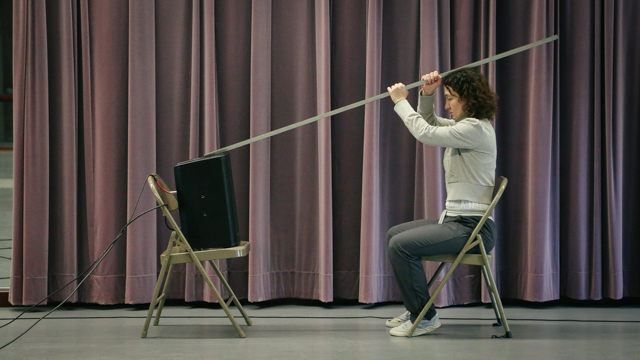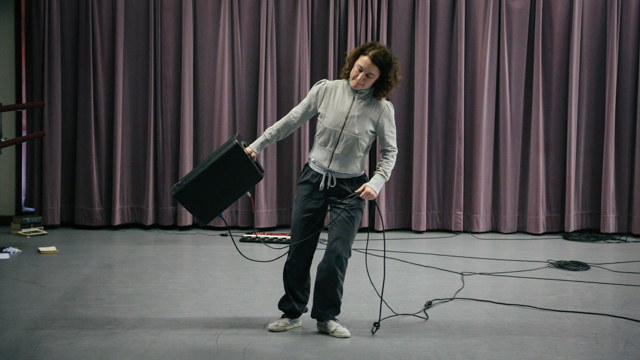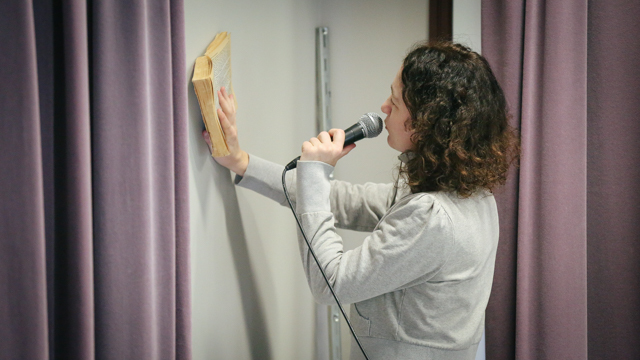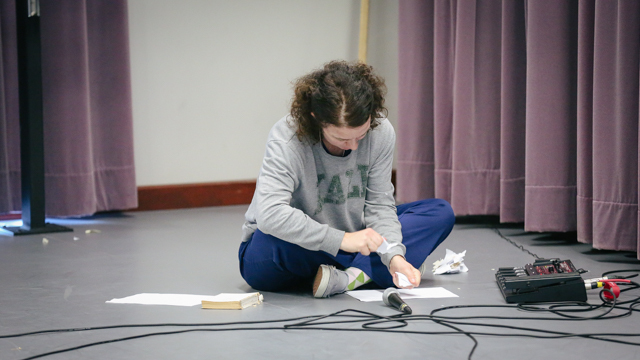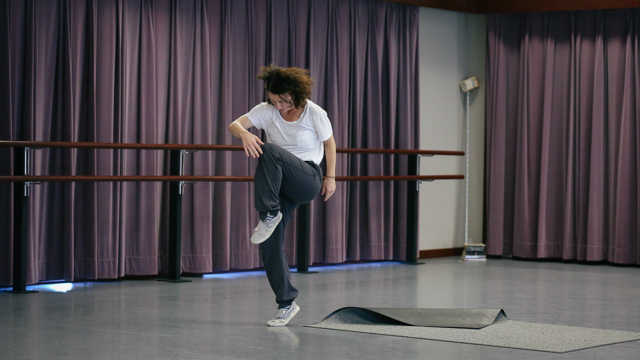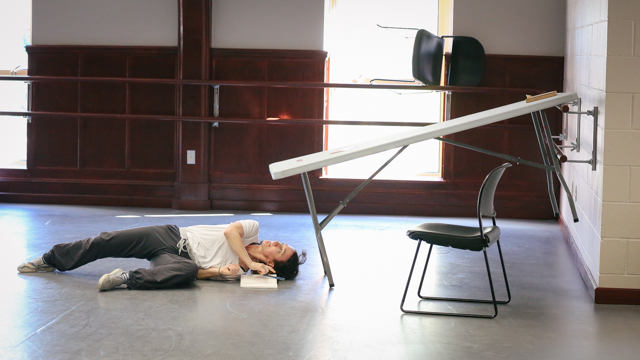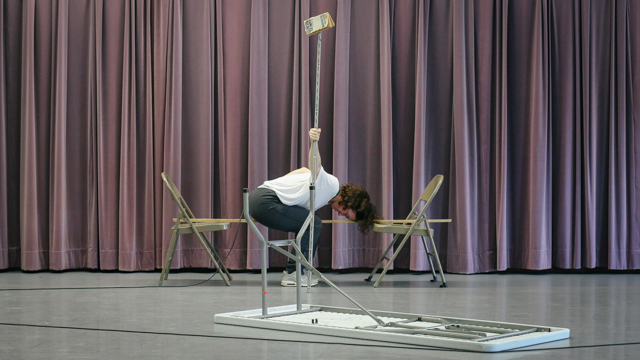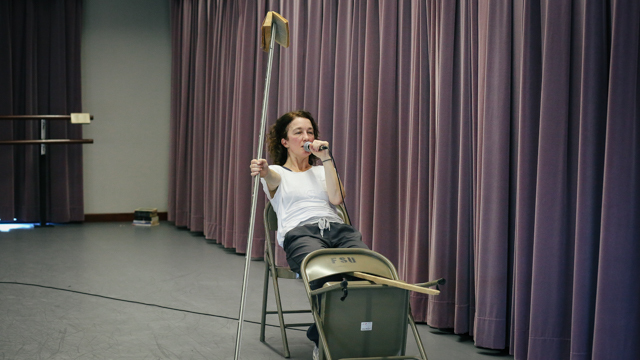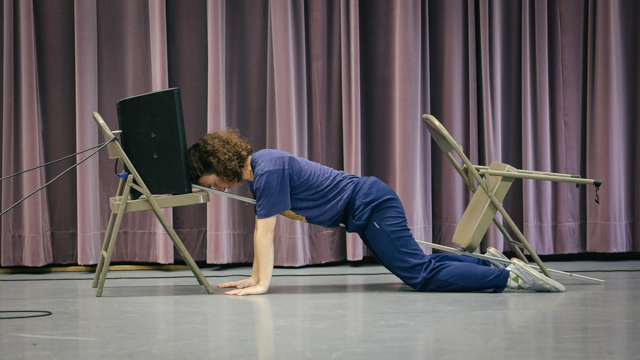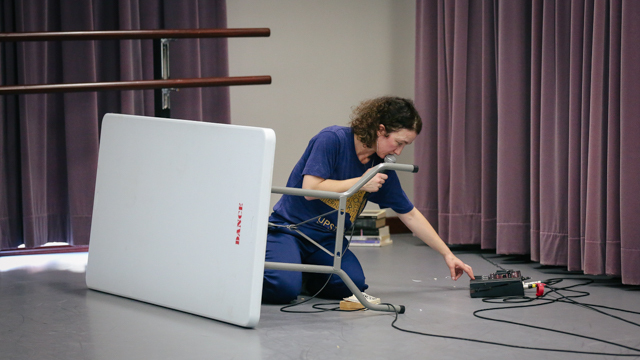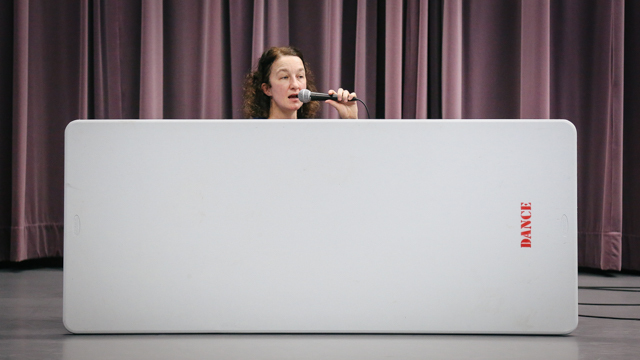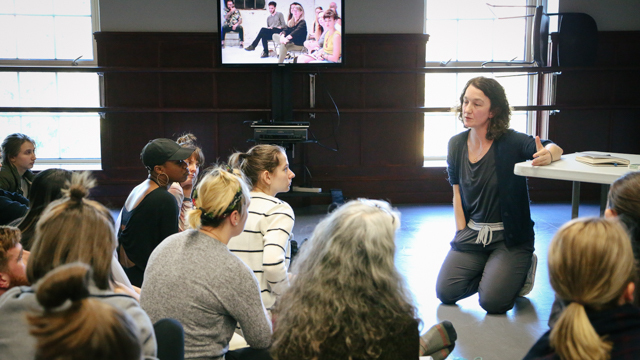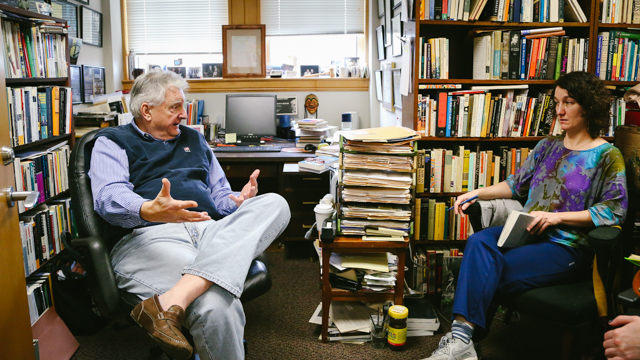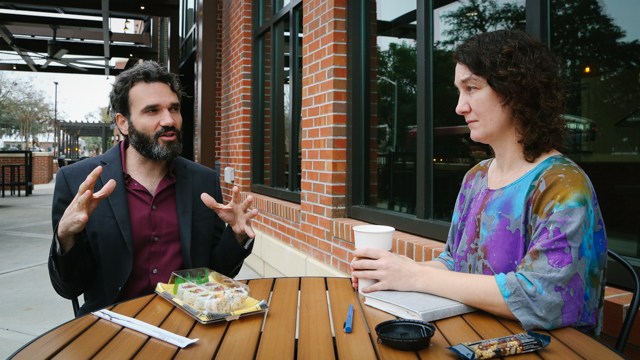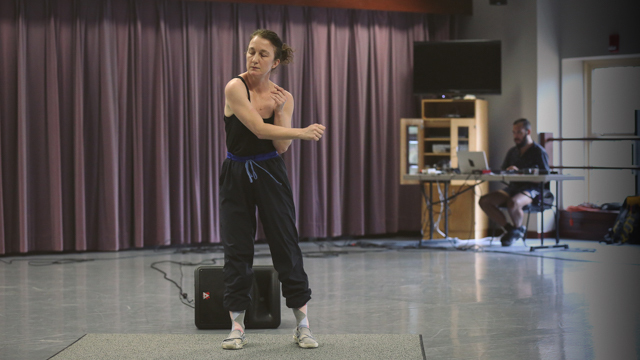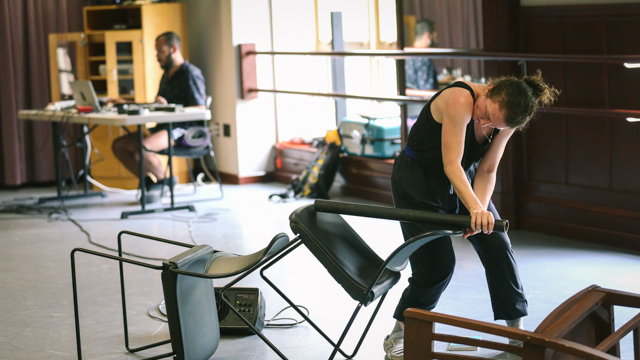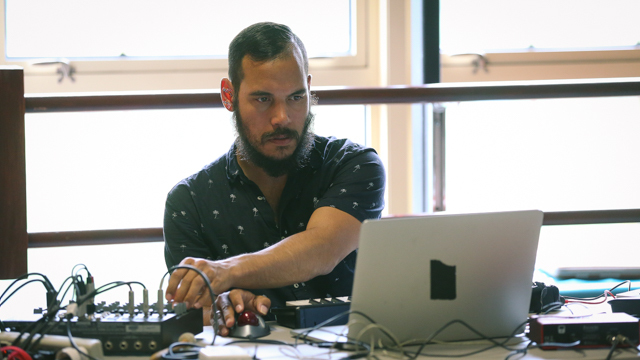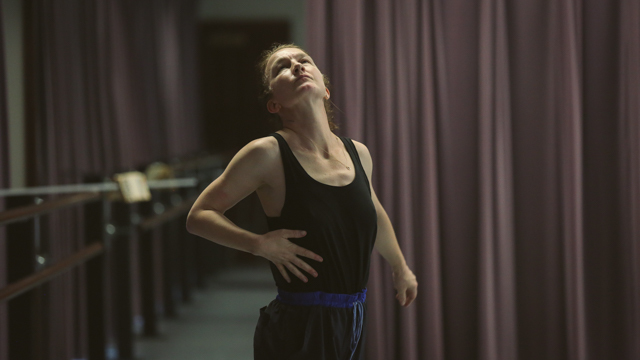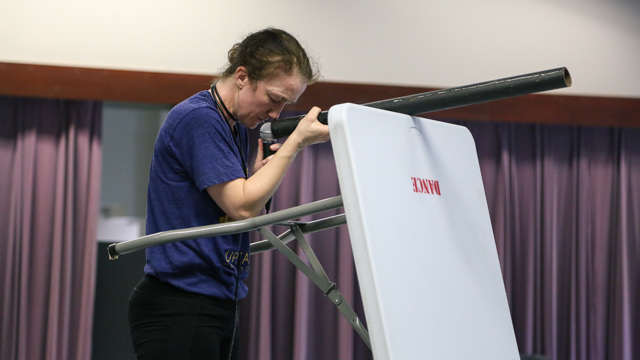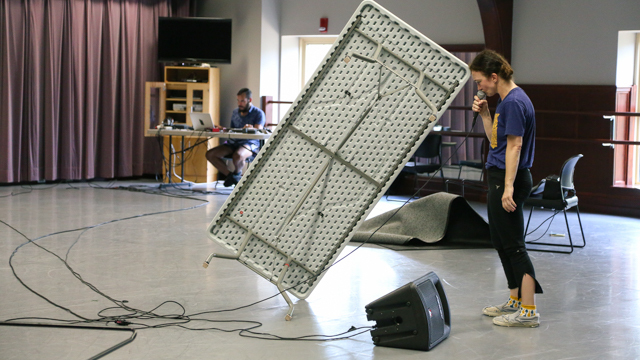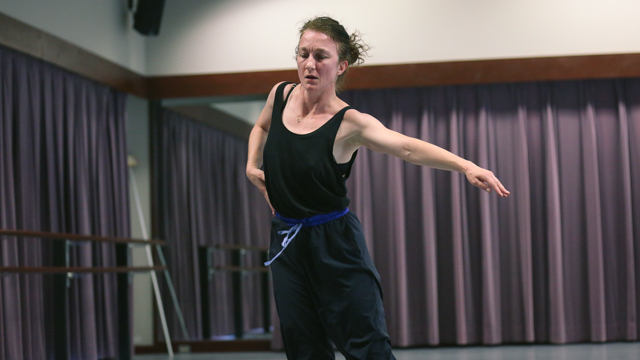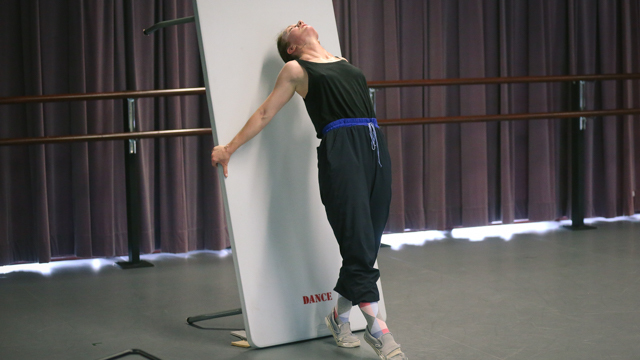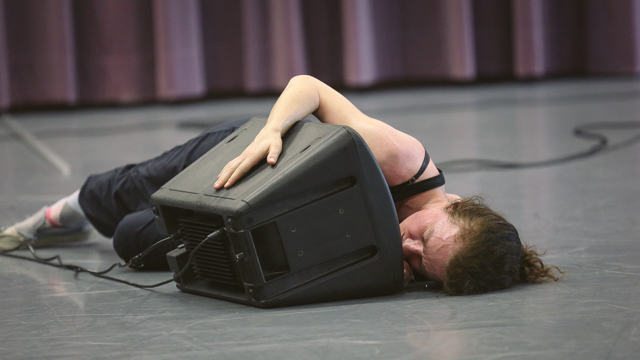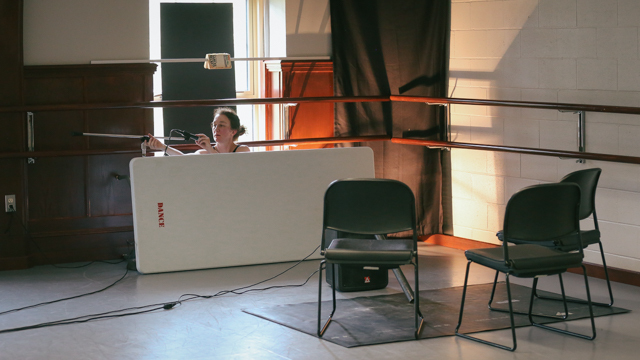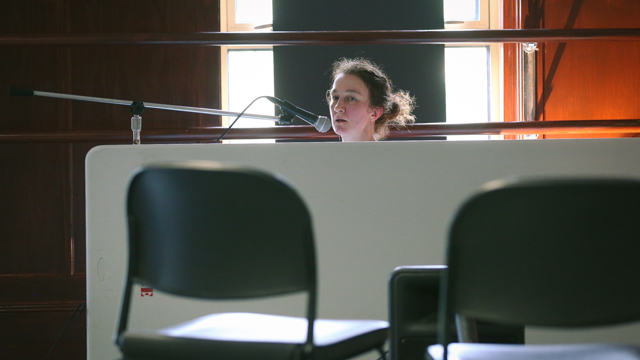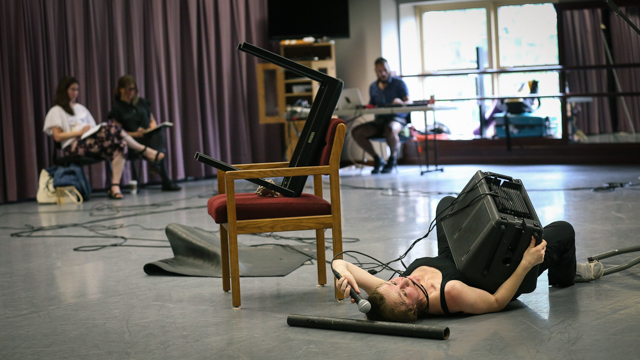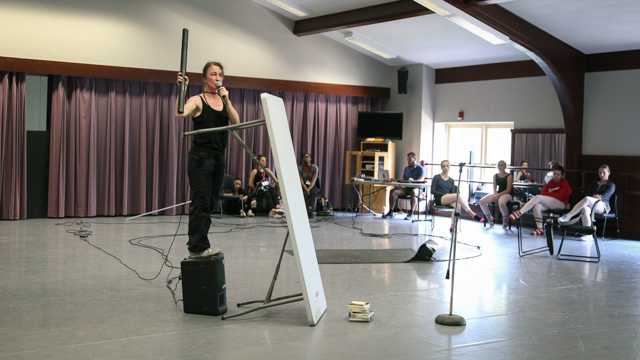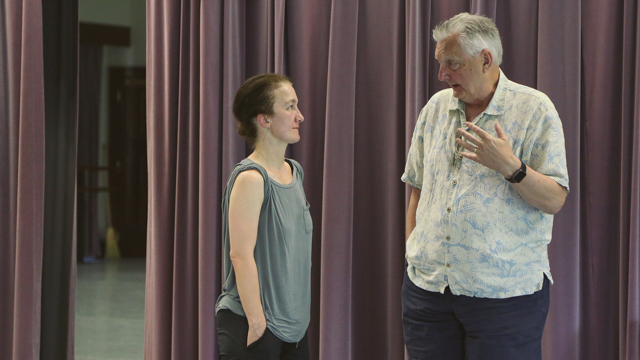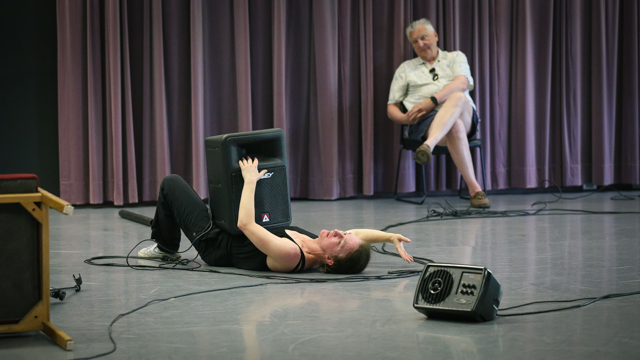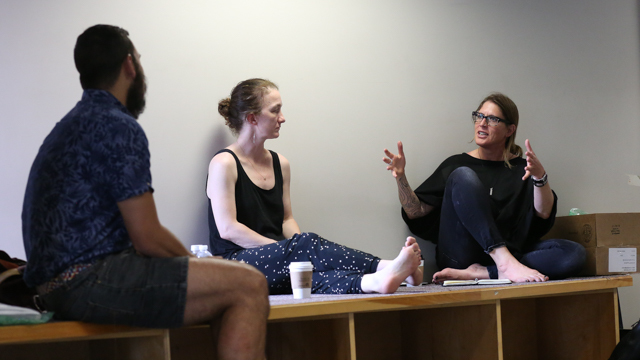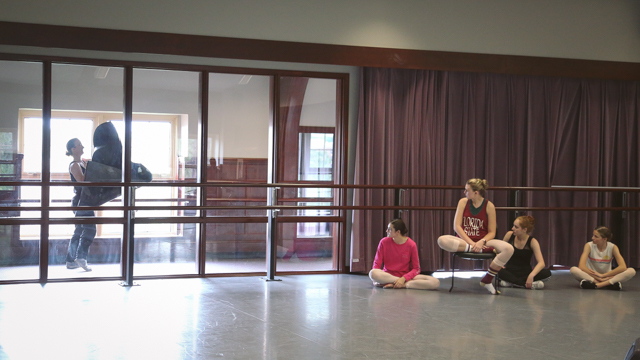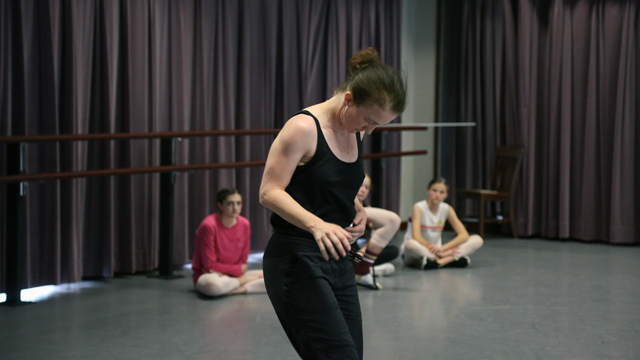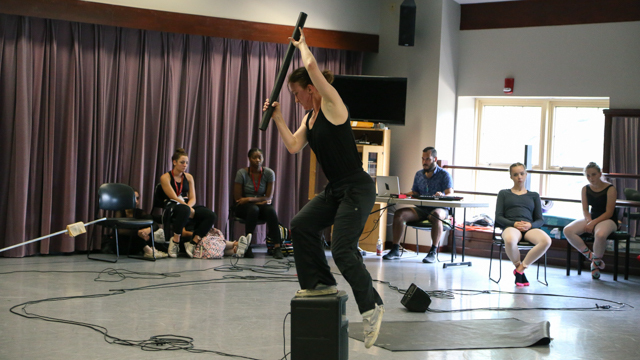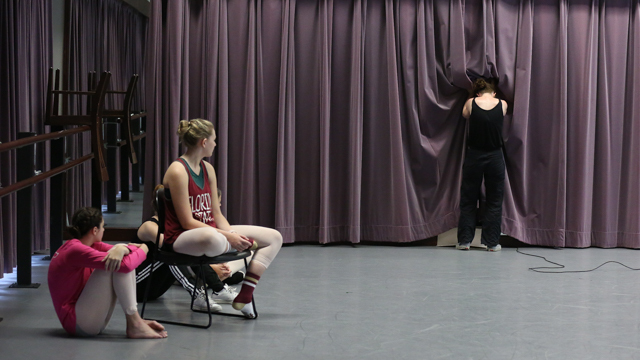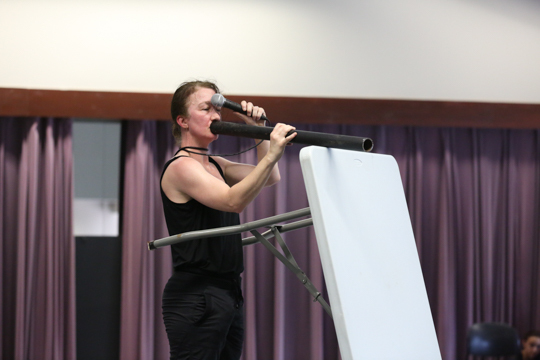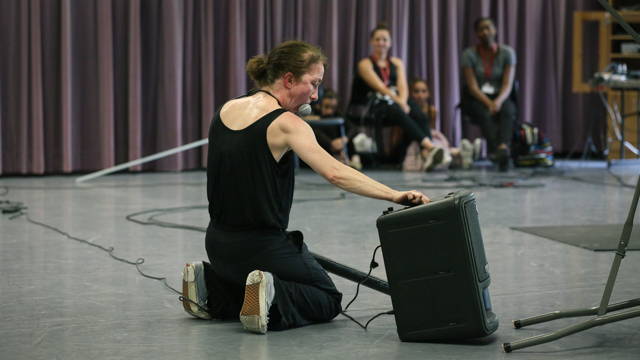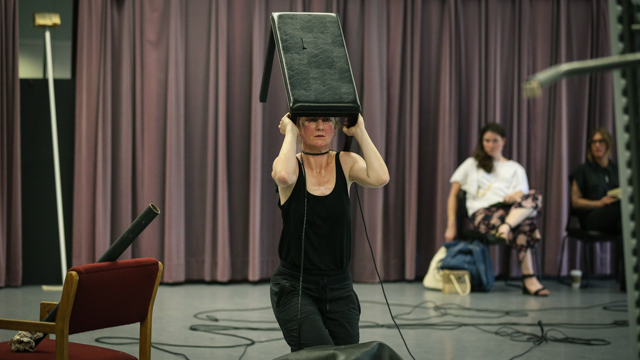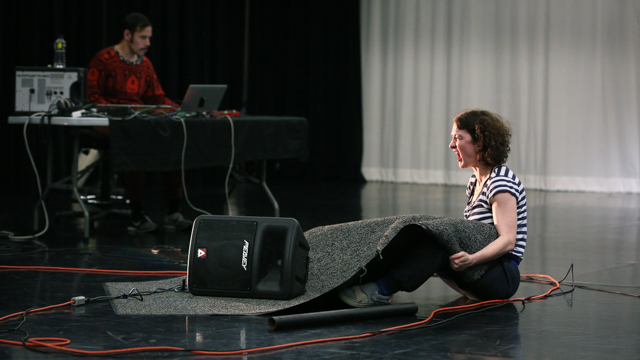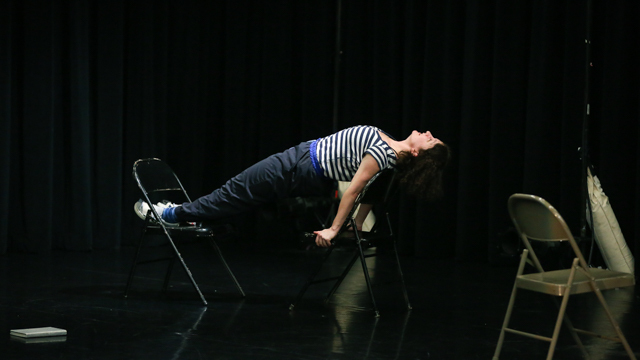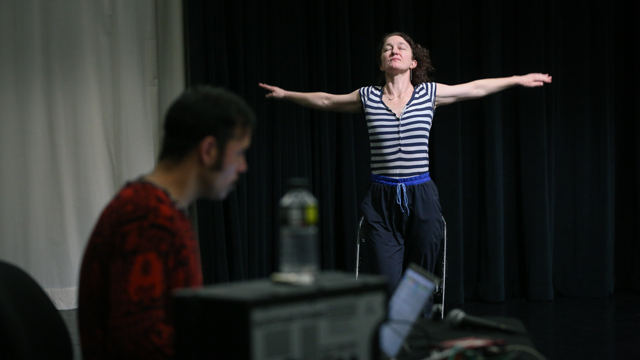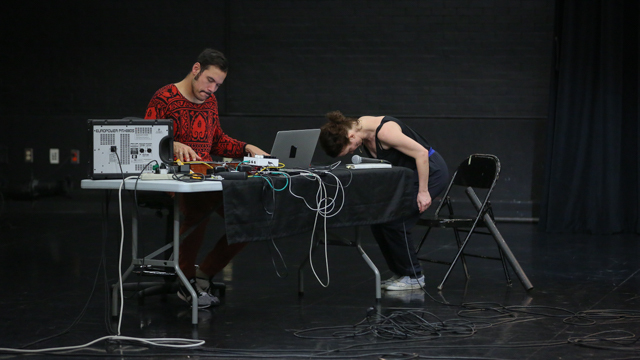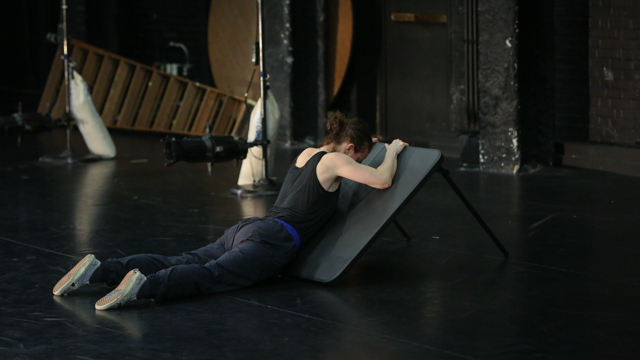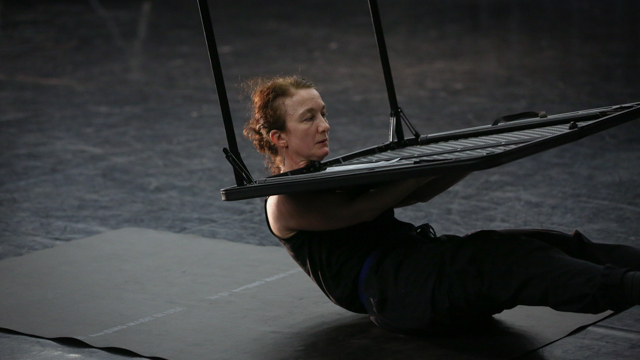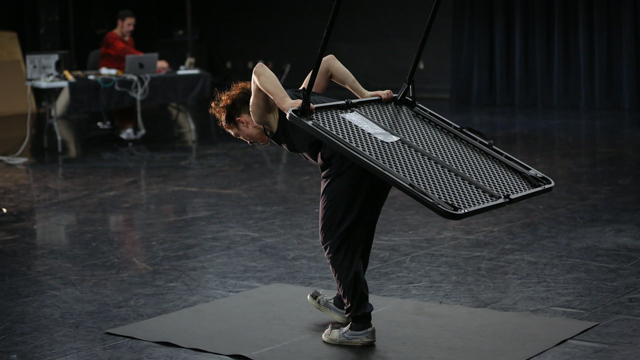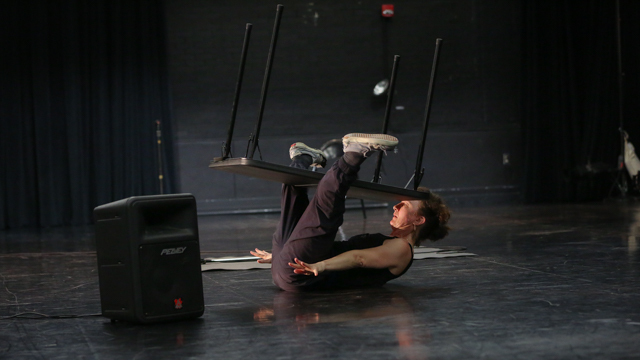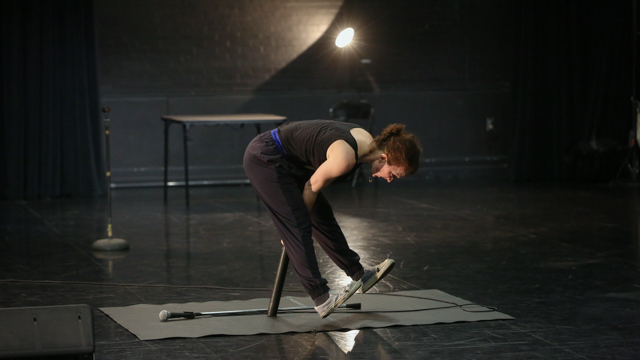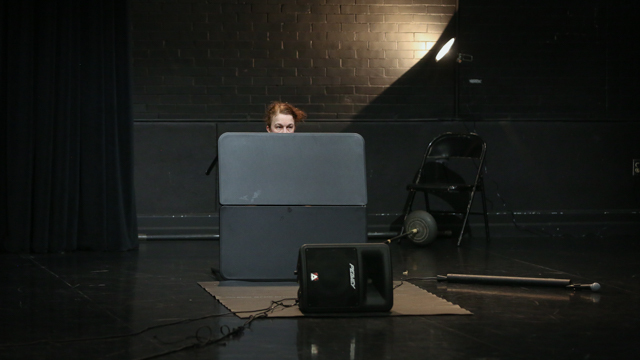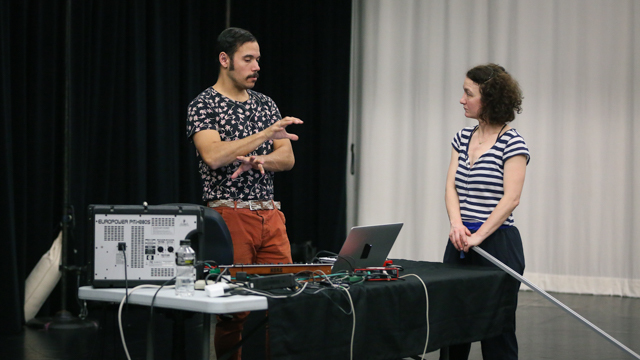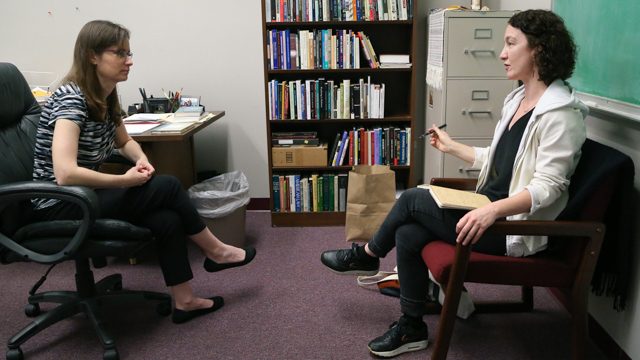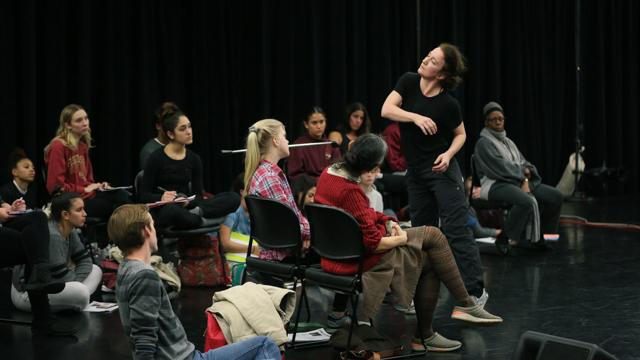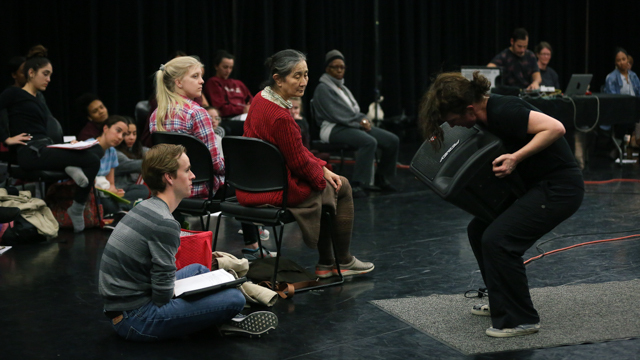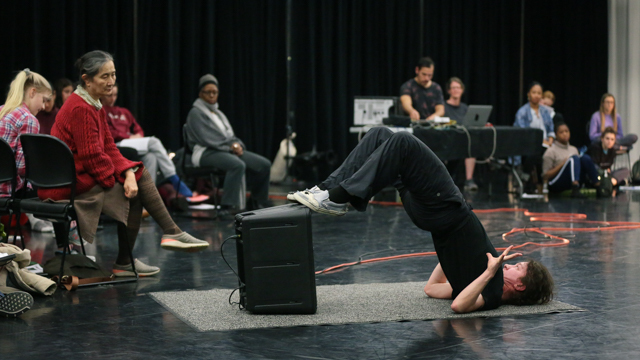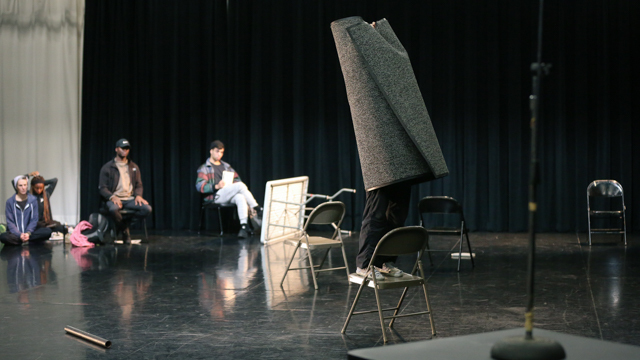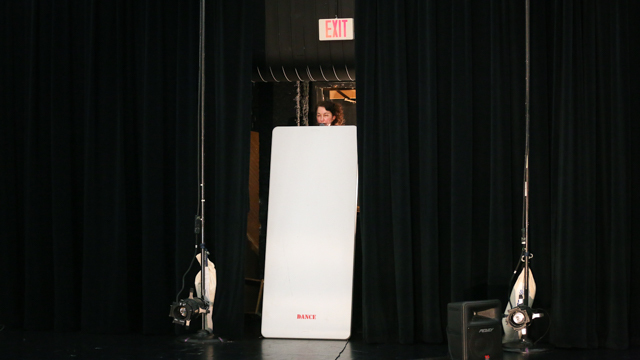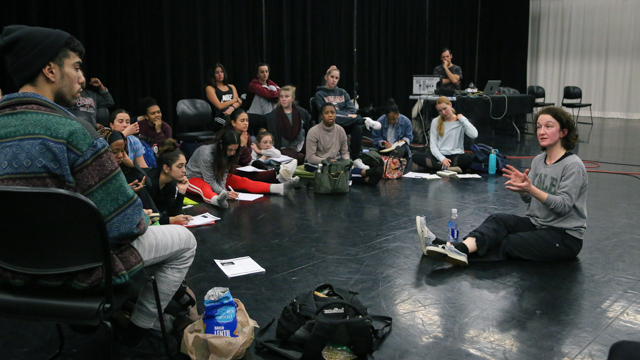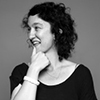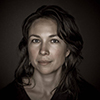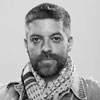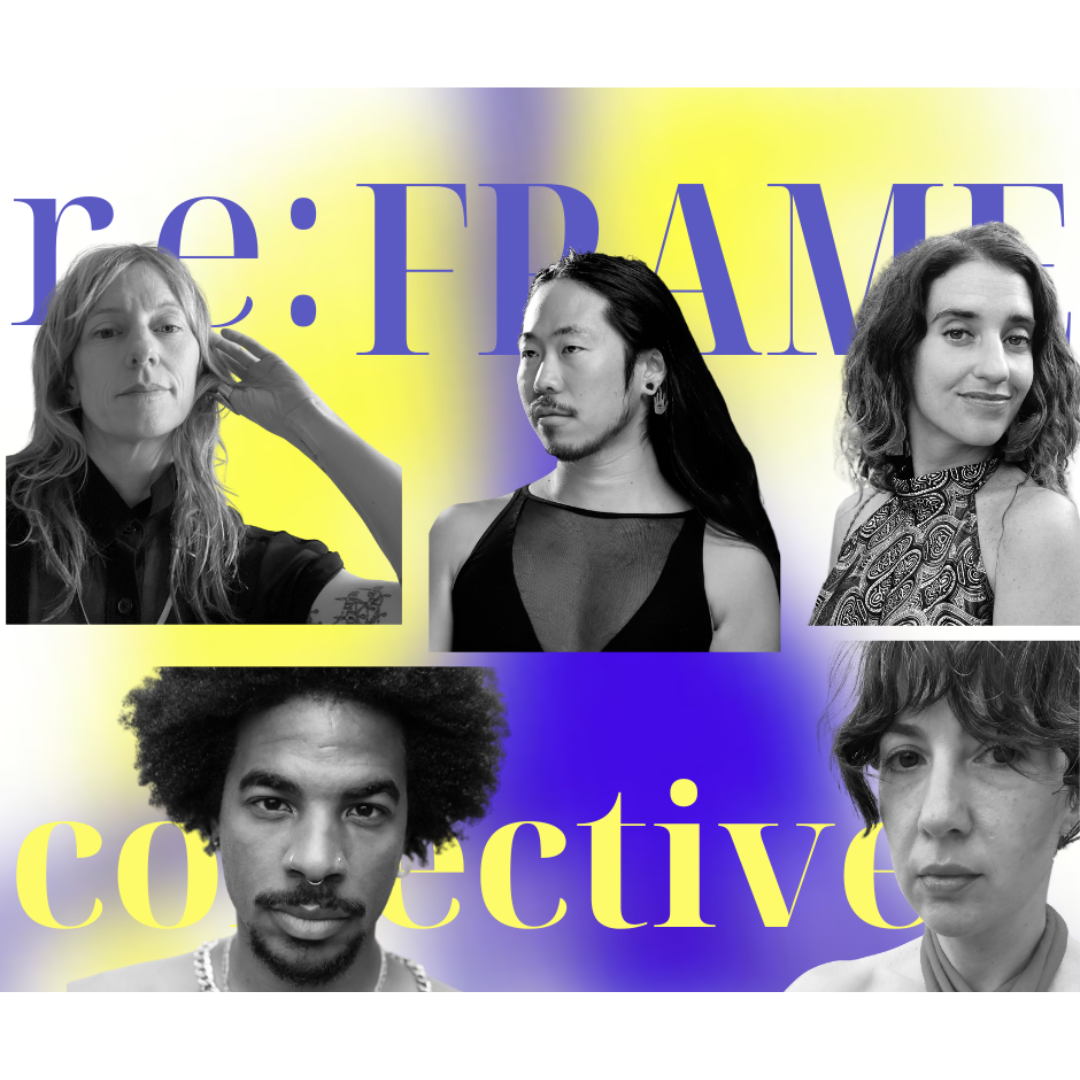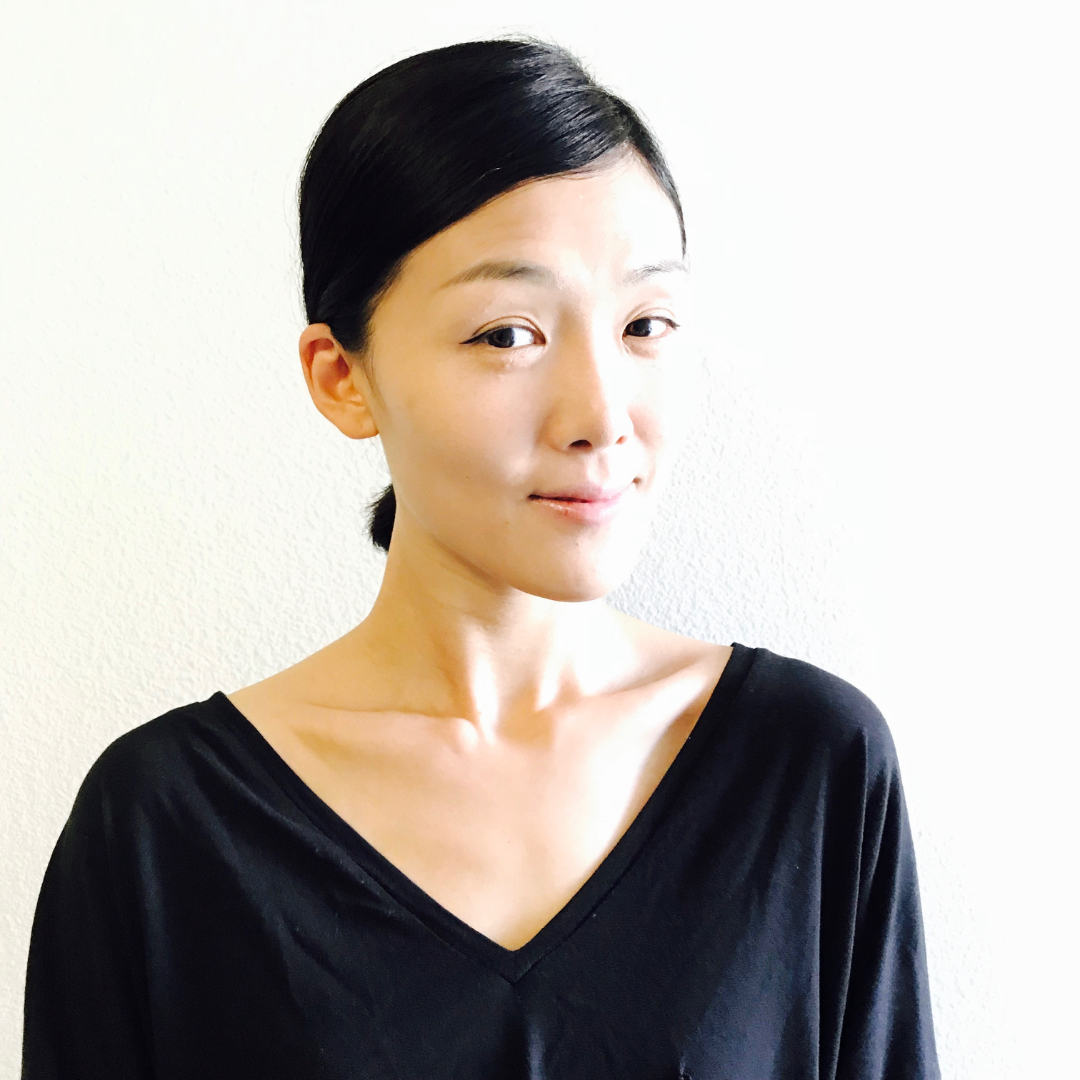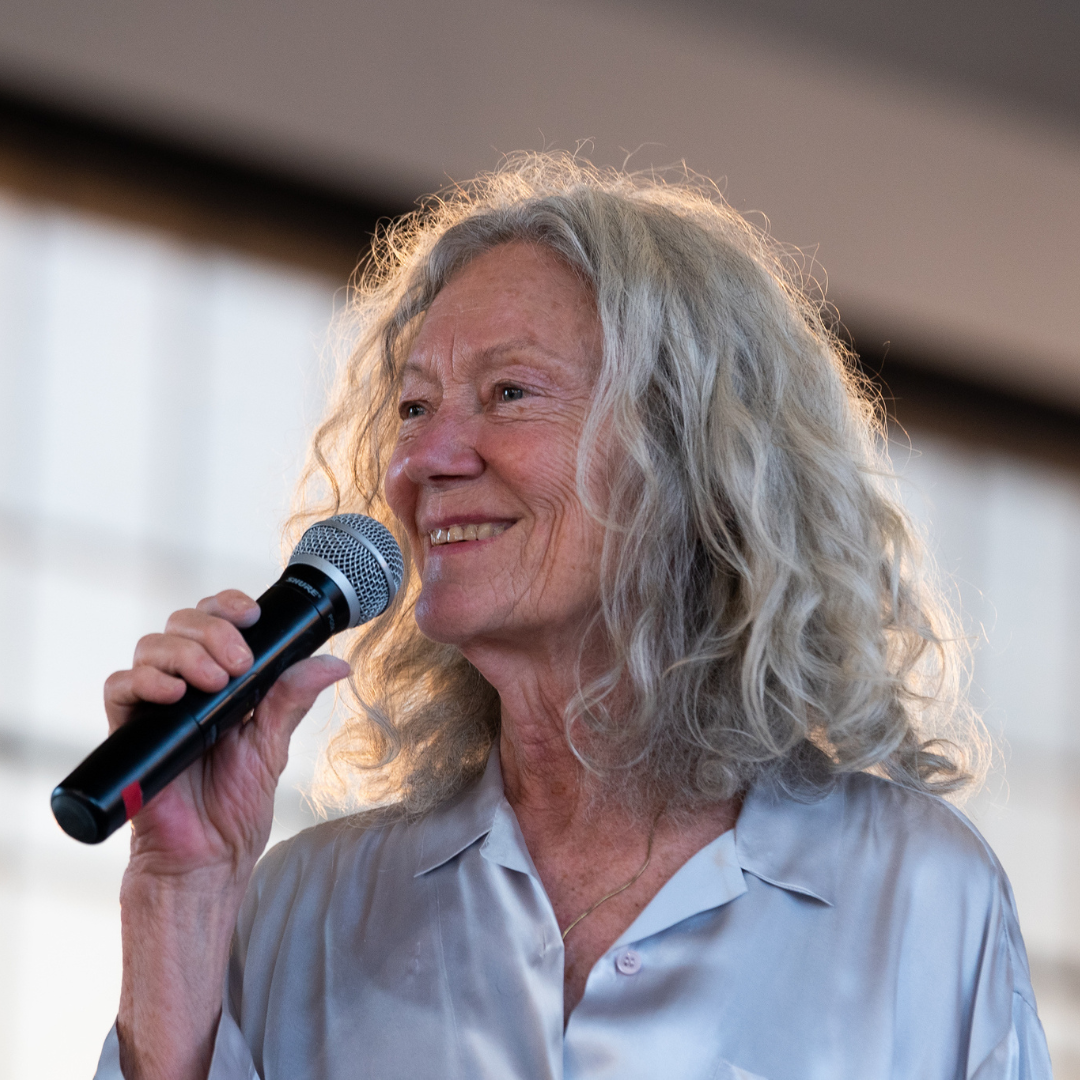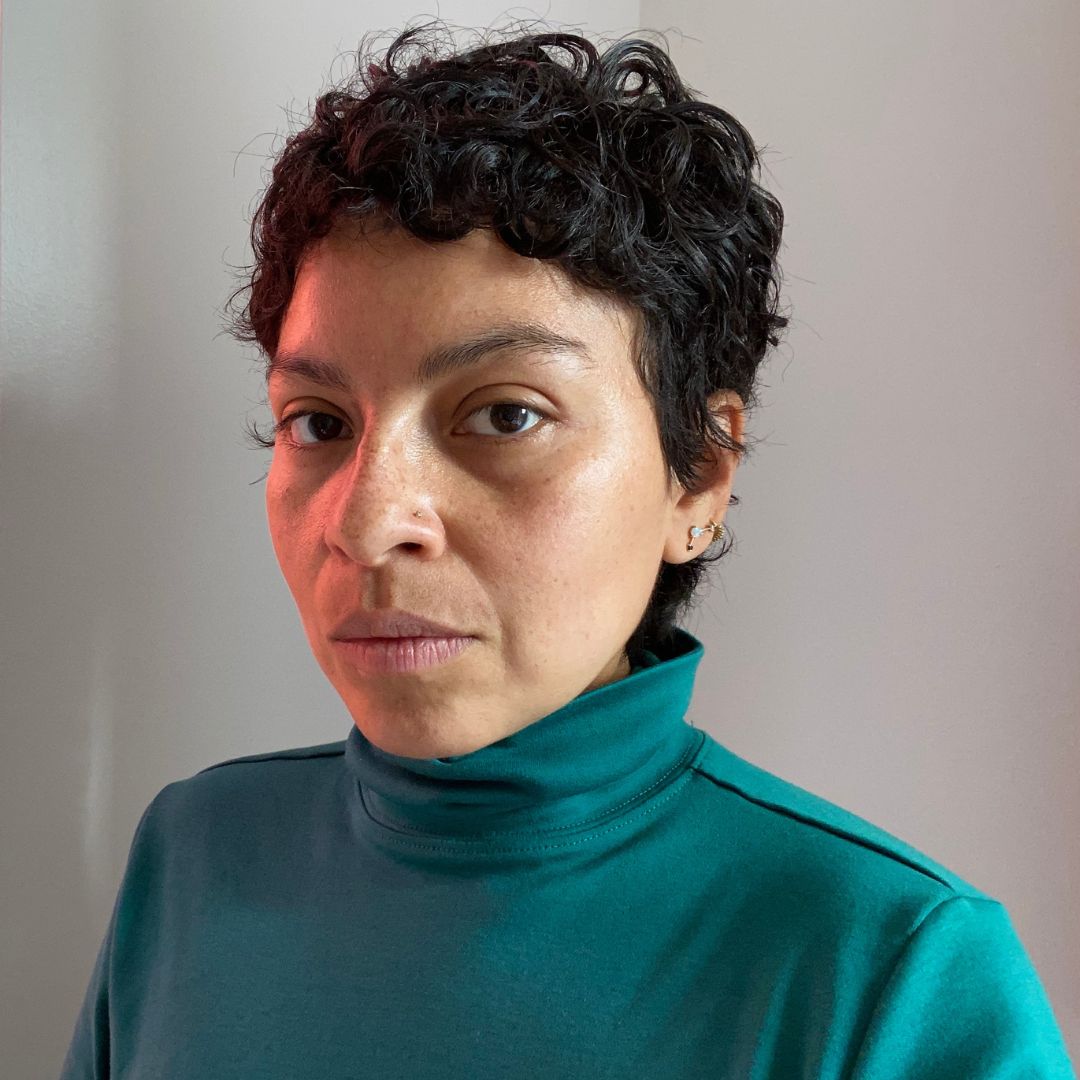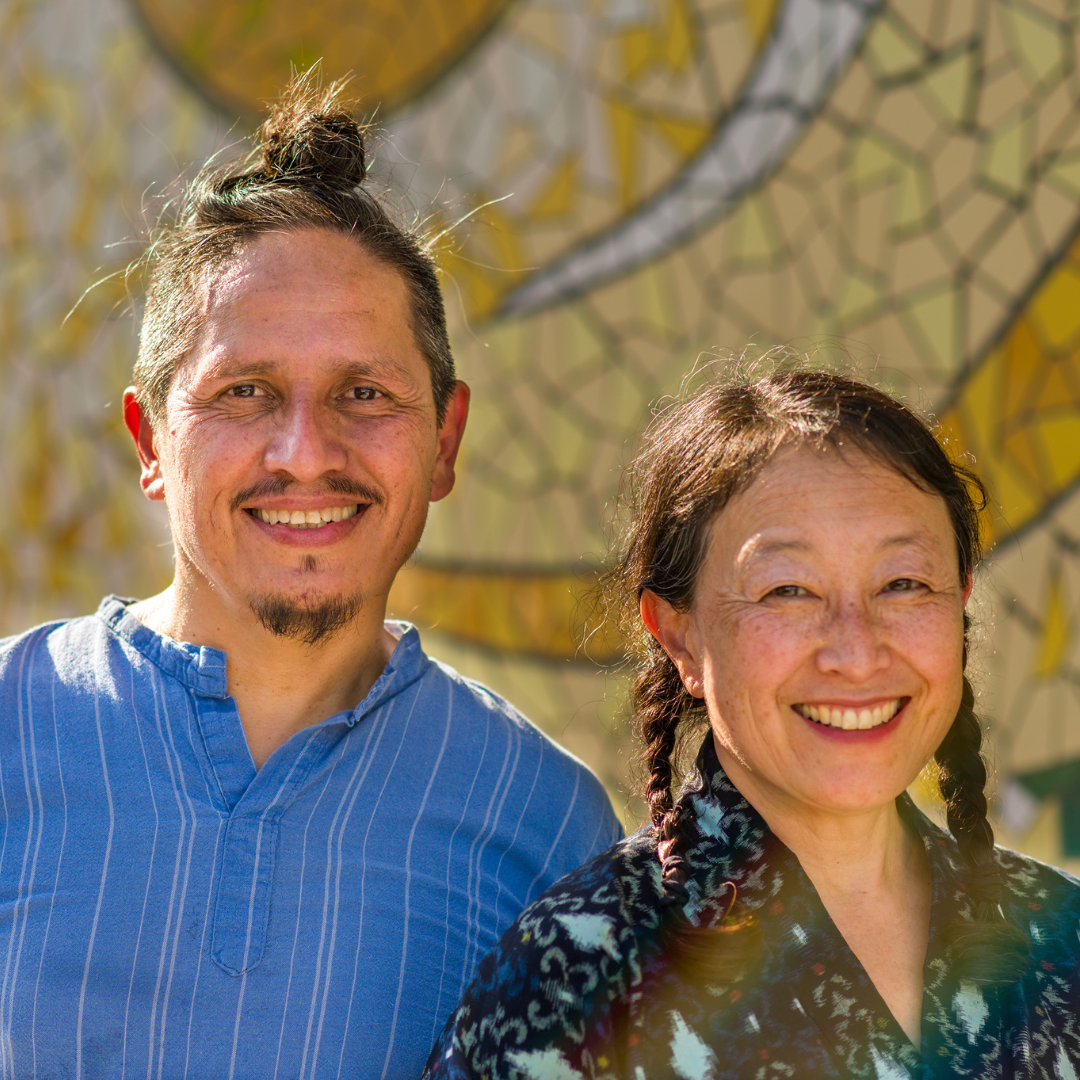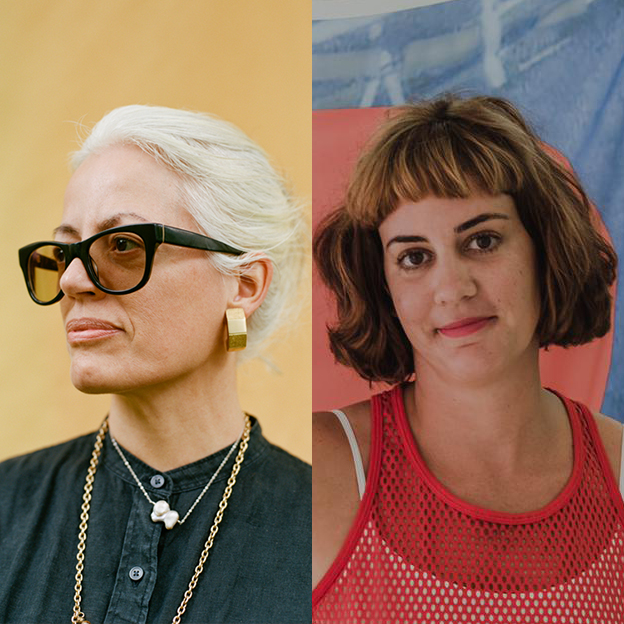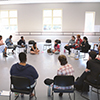Returning Choreographic Fellow | January 16 - 23, 2018 // May 29 - June 16, 2018 // Feb 27- March 13, 2019
dark matter, selfish portrait
Award winning choreographer Jeanine Durning first came to MANCC in 2008 as a performer in Deborah Hay’s work If I Sing to You and recently returned to MANCC for her third of three residencies to continue development of her solo dark matter, selfish portrait. A paradoxical practice of meta-morphing and de-creating, the work uses movement, language, sound, and situation within defamiliarized rooms, to interrogate subjectivity as a provisional and variable state. Following a residency in Bulgaria in October 2018, Durning continued her investigation into how engaging in this particular process in various spaces and environments informs and shifts the work.
Curious about the rich history of artists who have used themselves as material for their work, Durning initially researched self-portraiture in art and performance, and explored notions of (self)/consciousness, reflexivity, and perception. She found herself asking, ‘why do I keep coming back to the solo form and what is it about this self-reflexive practice that keeps challenging me?’ She realized that on one level, the desire to return to herself as material felt unnecessary, particularly in this time, which is in such dire need of community and togetherness. She views this line of questioning as necessary and critical. It became clear, however, that her interests lie not in herself per se, but in another self or, rather, an othering, or unselfing - passing through an ever-shifting archive of narrative forms, associations and representations. She became interested in the provisional nature of self assemblage and disappearing content, working with a body that is exponentially changing and receptive to variably unstable environments.
Continuing with her ongoing practice she calls “nonstopping,” Durning has drawn inspiration from William James, whose philosophy focused on the relationship among experience, behavior and adaptive consciousness within the individual, as well as the work of Samuel Beckett, which probed the individual’s search for meaning and radically explored the gulf between one’s desires and the language used to express them. In her own words, Durning explains, “on a very basic level, I'm asking, ‘where do we go, where and how do we place ourselves, in relation to what, how do we cope, how do we co-create environments that get normalized but end up becoming uninhabitable and fractured, and, ultimately, how does sudden change and precarity affect our bodies. How do we end up relating to our surroundings, to ourselves, to one another? And ultimately, what is the sense-making and meaning-making in the midst of this?’”
During her first MANCC residency in January 2018, Durning met with FSU’s Dr. Stanley Gontarski, Robert O. Lawton Distinguished Professor of English, whose research interests include European Modernism and performance theory, and who has published several books on the work of Samuel Beckett. Gontarski discussed Beckett’s oeuvre with Durning to further inform her embodied research on “the self” in both performance and society. She also discussed the theory of dark matter with astrophysicist Dr. Jeremiah Murphy. Durning further explored her ideas with School of Dance students in Dr. Jen Atkins’ graduate level MANCC Experience course and Dr. Hannah Schwadron’s Contemporary Perspectives on Dance class.
Durning returned to MANCC in June 2018 with composer Tian Rotteveel for a second residency, during which they began to collaborate on the sonic landscape of the work. Durning continued her conversations with FSU faculty members, Dr. Stanley Gontarski and Dr. Hannah Schwadron, and experimented with different orientations of audience and performer in two open rehearsals, which were attended by School of Dance faculty and students. As a part of MANCC’s Embedded Writers Initiative, Jenn Joy visited the artists in residence for two days of observation and conversation: from this time has come the idea of creating an artist book on Durning and her work by Joy.
During her third MANCC residency, Durning continued these lines of inquiry by meeting with Associate Professor of Philosophy, Dr. Andrea Westlund, whose work focuses on relational autonomy and feminist philosophy. Durning and Rotteveel also hosted two informal showings at FSU’s School of Dance. Durning referred to these as ‘sharings of her practice,’ the first of which was open to the community and the second of which took place during Associate Professor, Dr. Jen Atkins’, Contemporary Perspectives on Dance class. Both sharings concluded with discussions between the artists and the audience. Finally, as a continuation of Jenn Joy’s work with Durning, the two held a skype meeting during the residency to move the idea of creating an artist book further along .
This multi-residency support and support for the embedded writer is made possible through The Andrew W. Mellon Foundation, which allows artists to more thoroughly research their ideas in multiple phases.
